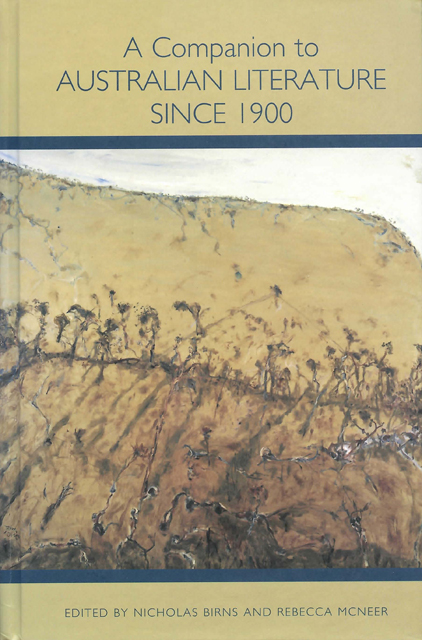Book contents
- Frontmatter
- Dedication
- Contents
- Chronology of Main Events in Australian History, 1901–2005
- Acknowledgments
- Note on the Cover Illustration and Artist
- Introduction
- Part 1 Identities
- Part 2 Writing Across Time
- Part 3 International Reputations
- Part 4 Writers and Regions
- Part 5 Beyond the Canon
- Notes on the Contributors
- Index
16 - David Malouf
Published online by Cambridge University Press: 10 March 2023
- Frontmatter
- Dedication
- Contents
- Chronology of Main Events in Australian History, 1901–2005
- Acknowledgments
- Note on the Cover Illustration and Artist
- Introduction
- Part 1 Identities
- Part 2 Writing Across Time
- Part 3 International Reputations
- Part 4 Writers and Regions
- Part 5 Beyond the Canon
- Notes on the Contributors
- Index
Summary
Toward The End of Remembering Babylon, the 1993 novel that brought David Malouf the first IMPAC Dublin Award and a host of other prizes, an old man eats an apple he has sliced with a pocket knife. It is a characteristic moment in Malouf’s writing: grounded in simple physical movement, the gesture resonates exquisitely toward a summation of identity, inclusiveness, and beauty.
The old man is Lachlan Beattie, who when last seen had been “not quite thirteen” (158) in the middle of the nineteenth century; in a final chapter, we learn that he has had a career in high-level politics (187), and that his cousin Janet, whom he visits here, has become a nun. Instead of narrating what became of his adult characters as a result of their childhood experience, Malouf risks its entire significance on this one scene, near the end of the First World War, late in their lives.
What he spoke of, as she watched him cut and lift out a neat wedge, was his grandson, Willie, who ten months before had been killed in France. The penknife was his. It was of yellowed ivory, with a silver-framed portrait on one side of King Edward, on the other of Alexandra. He had had it as a boy, and it had been with him, still a boy, when he fell, among the contents of his pocket along with Woodbines, a box of matches, and a hard little apple that he must have picked in an abandoned orchard, with a single sliver cut from it.
She knew what he was telling and wanted her to see. The boy must just have had time to shut the knife and slip it, along with the apple, into his pocket. Cutting into the hard little foreign fruit, inwards like that, to the core, was the last thing he had done, very solemnly as his grandfather was doing it, before they were called forward. The sour-sweet wafer might still have been in his mouth when he was hit — his last taste of the world its greenness, along with his warm breath expelled to meet the larger, colder one of the autumn morning, then the rush of blood. She watched the scabbed hands cut another thin slice, watched him chew and swallow. (192–93)
- Type
- Chapter
- Information
- A Companion to Australian Literature since 1900 , pp. 257 - 268Publisher: Boydell & BrewerPrint publication year: 2010

